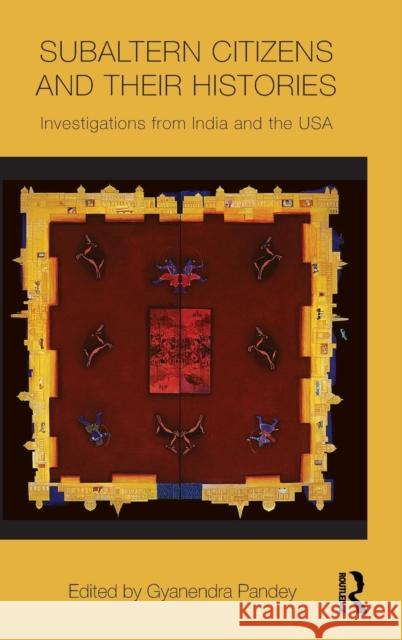Subaltern Citizens and Their Histories: Investigations from India and the USA » książka
Subaltern Citizens and Their Histories: Investigations from India and the USA
ISBN-13: 9780415778329 / Angielski / Twarda / 2009 / 230 str.
Subaltern Citizens and Their Histories: Investigations from India and the USA
ISBN-13: 9780415778329 / Angielski / Twarda / 2009 / 230 str.
(netto: 717,11 VAT: 5%)
Najniższa cena z 30 dni: 730,42
ok. 22 dni roboczych
Dostawa w 2026 r.
Darmowa dostawa!
Deploying the provocative idea of the 'subaltern citizen', this book raises fundamental questions about subalternity and difference, dominance and subordination, in India and the United States. In contrast to other writings on subordinated and marginalized people, the essays presented here devote deliberate attention to diverse locations of subalternity: in the conditions and histories of slaves, dalits, peasants, illegal immigrants, homosexuals, schoolteachers, women of noble lineage; in the Third World and the First; in pre-colonial, colonial and postcolonial times. With contributions from a diverse group of distinguished scholars, the anthology explores issues of gender and sexuality, migration, race, caste and class, education and law, culture and politics. The very juxtaposition of different bodies of scholarship serves to challenge common perceptions of inherited histories - claims to American and Indian 'exceptionalism' - and promotes a new awareness, not only of shared histories and shared struggles in the making of the modern world, but of particularities and facets of our different histories and societal conditions that are assumed as being well understood, and hence often taken for granted. Subaltern Citizens and Their Histories will be essential reading for scholars of colonial, postcolonial and subaltern studies, American studies, US and South Asian social science and history.
This book is concerned with the question of changing modes of disenfranchisement, and the historical struggles over them, in the different locations of South Asia and North America. It focuses on the question of how Americanness and Indianness, i.e. Indian and American ‘exceptionalism’, has been constructed. Investigating the roles assigned or allowed to the subordinated and the marginalized in such constructions, the chapters in this book deal with notions of the people/nation/folk and the meanings of concepts such as democracy, politics, difference and equality as articulated in philosophy, history, the media and the law. Another focus is the politics of peasants, slaves, casual labourers, women and sexual minorities in the making of the ‘modern’ state and society. In charting these histories, this book documents the continued subalternization, and the denial of full rights as citizens, to many groups in the democratic societies discussed.
Initiating a conversation across very different world areas, this book stimulates new conversations about each region, and beyond both. The juxtaposition of different bodies of scholarship and differing debates brings about a new awareness, not only of shared histories and shared struggles in the making of the modern world, but of particularities and facets of our different histories and societal conditions that are assumed as being well understood, and hence taken for granted.











